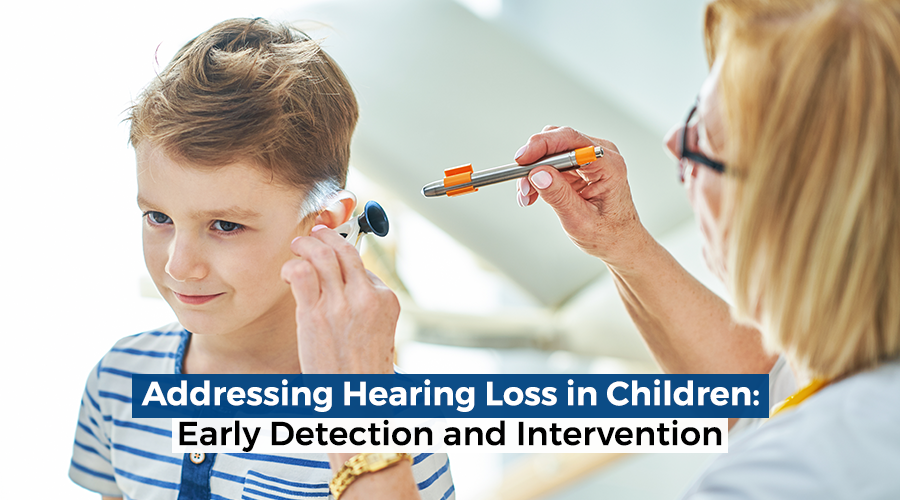Addressing Hearing Loss in Children: Early Detection and Intervention

Hearing loss in children can significantly impact their language development, social skills, and academic success. Early detection and intervention are crucial for mitigating the effects of hearing loss and maximizing the child’s potential. In this blog post, we’ll explore the importance of addressing hearing loss in children, the signs and causes of hearing impairment, and the available intervention options for families.
-
Understanding the Importance:
- Critical Period for Development: The early years of a child’s life are a critical period for language acquisition and cognitive development. Untreated hearing loss can impede these processes, leading to delays in speech and language skills, academic performance, and social interactions.
- Impact on Learning: Children with undiagnosed or untreated hearing loss may struggle in school due to difficulties understanding instructions, participating in classroom discussions, and following conversations with peers. Addressing hearing loss early can improve educational outcomes and set the child on a path to success.
- Social and Emotional Well-being: Hearing loss can affect a child’s self-esteem, confidence, and social relationships. Communication challenges may lead to feelings of isolation, frustration, and low self-worth. Early intervention can provide the necessary support and resources to help children cope with their hearing loss and thrive in social settings.
- Long-term Benefits: Identifying and addressing hearing loss in children early can have long-term benefits for their academic, social, and emotional development. With appropriate intervention and support, children with hearing loss can achieve their full potential and lead fulfilling lives.
Signs and Causes of Hearing Loss in Children:
- Delayed Speech and Language Development: Children with hearing loss may exhibit delays in speech and language milestones, such as babbling, using single words, and forming sentences.
- Difficulty Hearing Soft Sounds: Children with hearing loss may have trouble hearing soft sounds, such as whispers or distant noises, and may frequently ask others to repeat themselves.
- Frequent Ear Infections: Chronic ear infections can lead to temporary hearing loss in children, affecting their ability to hear clearly and causing discomfort or pain.
- Genetic Factors: Some cases of hearing loss in children are caused by genetic factors passed down from parents or family members.
- Congenital Conditions: Certain congenital conditions, such as cytomegalovirus (CMV) infection, prematurity, and exposure to certain medications during pregnancy, can increase the risk of hearing loss in newborns.
Intervention Options:
- Newborn Hearing Screening: Universal newborn hearing screening is a standard practice in many countries, allowing for early detection of hearing loss shortly after birth.
- Diagnostic Testing: If a newborn fails the initial hearing screening or is at risk for hearing loss, further diagnostic testing, such as auditory brainstem response (ABR) testing or otoacoustic emissions (OAE) testing, may be recommended.
- Hearing Aids: For children with mild to moderate hearing loss, hearing aids can amplify sounds and improve their ability to hear speech and environmental sounds.
- Cochlear Implants: Children with severe to profound hearing loss may benefit from cochlear implants, which bypass damaged portions of the inner ear and stimulate the auditory nerve directly.
- Auditory Verbal Therapy: Auditory verbal therapy (AVT) is a specialized form of therapy that focuses on developing listening and spoken language skills in children with hearing loss, emphasizing early detection, consistent use of hearing technology, and intensive intervention.
Addressing hearing loss in children requires a comprehensive approach that prioritizes early detection, accurate diagnosis, and timely intervention. By recognizing the signs and causes of hearing impairment, advocating for universal newborn hearing screening, and accessing appropriate intervention services, families can give their children the best possible chance to thrive academically, socially, and emotionally. Let’s work together to ensure that every child has the opportunity to reach their full potential, regardless of their hearing abilities.
